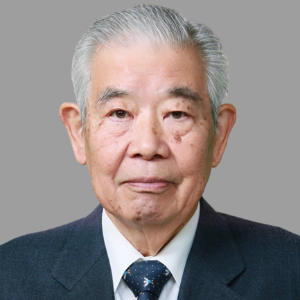Title : Alternatives used in plant quarantine treatment and appropriate use of methyl bromide in Japan
Abstract:
When plants are imported from abroad, they are subject to plant inspection at the entry because of the protection from pest invasion, spread and establishment in the country. When plant inspector intercepts pest, he orders to disinfest pest. In the disinfestation methods there are various ways available to the pests. Currently methyl bromide fumigation treatment is popular because of the secure disinfestation effectiveness, simple treatment operation and economic feasibility.
However, methyl bromide is one of the substances of the Montreal Protocol on the substances that deplete the ozone layer. Methyl bromide (MB) for soil treatment and pest disinfestation of non quarantine and pre-shipment (non QPS) commodity uses of harvested products and of the living pests in the structure is already phased out.
However, methyl bromide for the use of QPS treatment is exempted from the control. Currently annual global consumption is about 10,000 tonnes. There is no sign to decrease its volume. Therefore, it is concerned with the impacts to the ozone layer and expected to reduce by the use of alternatives to methyl bromide. According to Decision XX/6 of the Montreal Protocol, the use and emission of MB in the quarantine and pre-shipment is suggested to reduce as much as possible to adopt alternative.
In this presentation, I would like to stress on the alternatives currently available in the quarantine treatment in Japan and to explain methyl bromide fumigation treatment for the minimum use with secure disinfestation effectiveness to the pests and the less emission to the atmosphere at the end of treatment.
Alternatives to methyl bromide applied in the quarantine treatment in Japan are mainly aluminum phosphide and carbon dioxide fumigation to treat grain, methyl iodide fumigation for timber and wood, system approach for the import of cherry fresh fruit from US and heat treatment of Kiln dry to wood packing materials for export etc. They are all authorized as a disinfestation treatment.
Methyl bromide is exclusively registered for quarantine treatment and not allowed for other uses. Dosage rates for grain are specified in fumigation standards to ensure the disinfestation effectiveness and minimum emissions to the atmosphere. It is included various factors for treatment such as for bagged grain in a chamber or bulk grain in a silo, plant product absorption, fumigation duration time, kinds of quarantine insect pest, gas retention capability of fumigation chamber, gas circulation system, grain temperature and grain loading rate. The majority of fumigation chambers in Japan are considered to be of high gas retention ability and have good airtightness which is expected to give the minimal emissions of MB to the atmosphere. Lists of quarantine and non-quarantine pests are established in accordance with the pest risk analysis mentioned in the International Standards for Phytosanitary Measure (ISPM)-15 issued by International Plant Protection Convention (IPPC).


